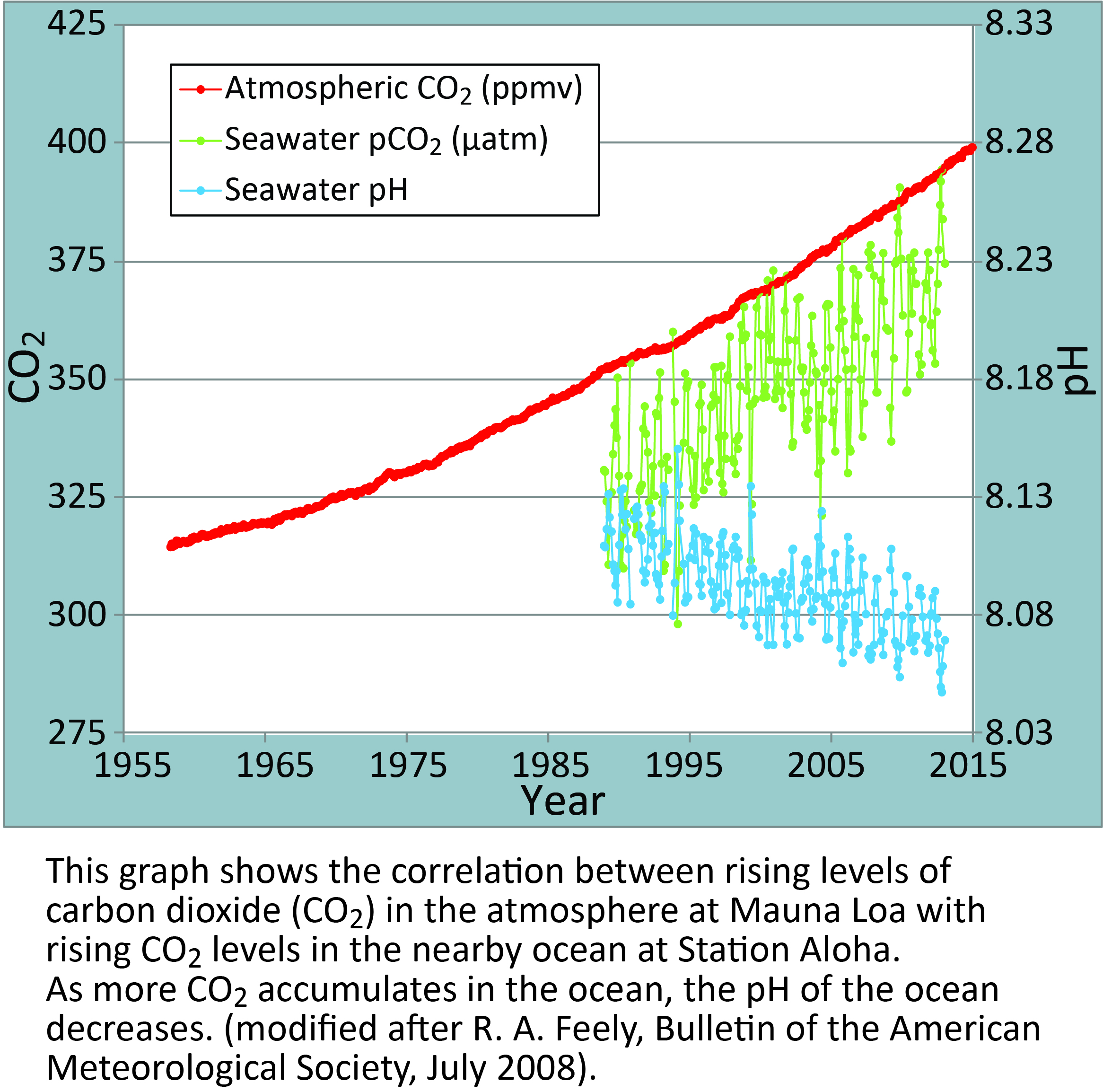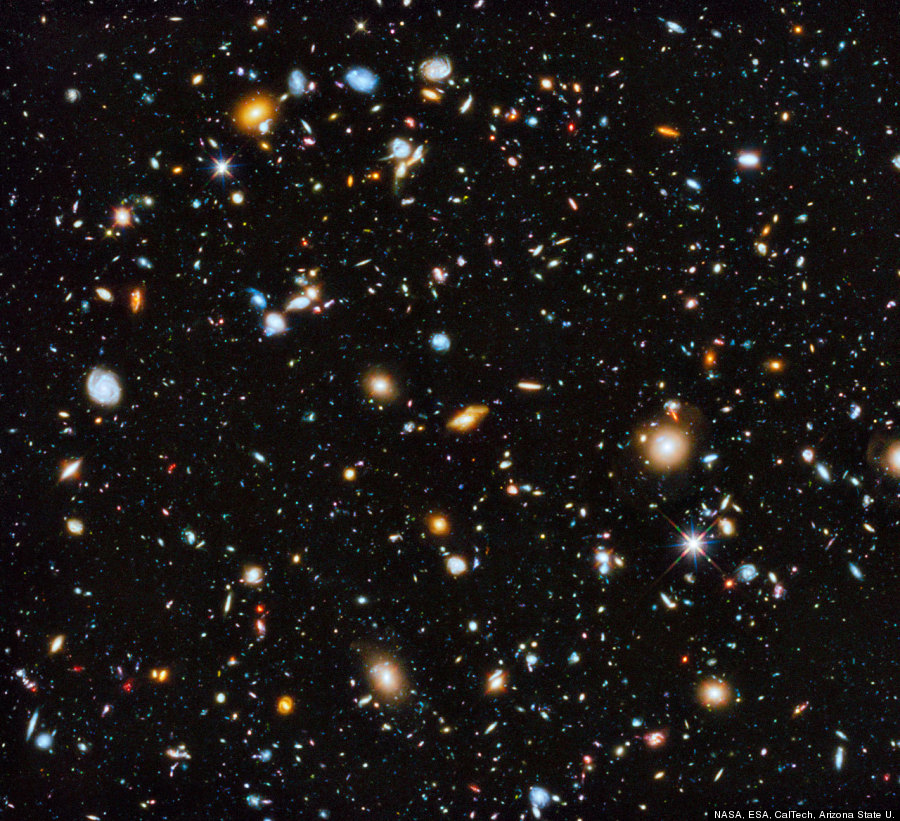Wednesday, April 29, 2015
The Baby Oyster in the Coal Mine
Saturday, April 18, 2015
The Thirty-Meter Telescope (TMT) and the Ten Thousand Galaxies
My daughter and I disagree on the Thirty Meter Telescope.
Construction was to begin a couple of weeks ago but the road was blocked by protestors, and the protests grew and then went viral on social media. The TMT would be the largest telescope on earth (although they are supposedly building one of similar size in Chile) and would be the 14th telescope on Mauna Kea, our tallest, most beloved, and, yes, sacred mountain. It will take ~10 years to build, will cost $1billion, and be 180 feet tall. The protestors say enough already.
Personally I am entranced by the above photo taken from the Hubble. I want to know more about the origins of the universe and the nature of dark energy and dark matter. Supposedly the TMT will allow our gaze to reach new edges of what is known and imaginable.
But my daughterʻs disapproval of the TMT troubles me. If she, and most of they young people her age, donʻt want it on that mountain, then what is the point of building it? It is more important that we honor their nascent sense of the wild and sacred than to build another machine, even one as relatively benign as a telescope. Even one that could bring us more beautiful images than the one above. They will only be images after all, and we have lots of images already. What we need more than images is the ability to love the land and protect it from destruction by those who do not know how to love the land. If the TMT must be sacrificed to nurturing that love, so be it.
Tuesday, April 14, 2015
What we prize and what we have built in Western civilization: edifices and expanses of stone, steel, concrete, intricate and globe-spanning machines (this here internet). Our high arts - painting, sculpture, photography, architecture, video - all involve the manipulation of non-living materials to mimic or evoke life. The mental arts that we value - mathematics, logic, logos, the Word of God, books, poems - all depend upon a distancing of the mind, a translation of the world into symbols. All of our paths lead us away from actual living life and into a place of clean, pure abstractions.
It is no little thing to turn that ship around. I'm going to stop hating on Descartes and blame it on Plato instead, for a while.
Green grass and flitting birds, forests and wild pigs, gardens and pastures, fleas and earthworms - those do not turn up in The Republic. Why? Big-time epistemological error, Plato. Socrates' verbal bullying skills are not really all that interesting.
Why do we have to fall down in awe in front of Michelangelo and Da Vinci? Or Prada, for that matter. The mountain that it is my privilege to see every day is a thousand times more beautiful and fascinating than even a Velasquez. My horse has things to impart that are more profound than King Lear. Seriously, but it's not in words. A horse speaks in movements and in relationships that exist in the present. As in Right Now. A Right Now that is so big and so fast that I am barely able to comprehend it, but if I am really, really alert I catch a little bit. A little bit about the relationship between the faint breeze and the distant mountain, maybe, before it changes and is gone and we are in another Right Now where I'm struggling to keep up with what is going on.
Saturday, April 11, 2015
"I am trying to investigate the communicational regularities in the biosphere, assuming that in doing so, I shall also be investigating interwoven regularities in a system so pervasive and determinant that we may even apply the word "god" to it. The regularities we discover - including regularities and necessities of communication and logic - form a unity in which we make our home." Gregory Bateson and Mary Catherine Bateson, Angels Fear: Towards an Epistemology of the Sacred.
I keep coming back to Bateson's work. The shift in perspective, in the underlying habits of thought of perception, that his work articulates is, well, I don't have a word for it, but it's a big deal for me; this idea that one is inside of an environment which is thinking by means of on-going interactions/communications - between rain, grass, grazing animals, for instance, and, again, this is not something you learn about so much as something you inhabit.
It's a humbling shift in perspective because we humans raised in Western industrial nations really like to think of ourselves as gods, as divine beings somehow above all of the stuff that goes on in the non-human world. We've been told all of our lives that we are so important that we're not supposed to die and flow back into the cycle of content. We have technology and therefore we are above all of those nasty and demeaning biological cycles. We're always talking, talking, talking, to shut the world out - praising or fighting or ordering or planning or persuading...just like I am now.
I keep coming back to Bateson's work. The shift in perspective, in the underlying habits of thought of perception, that his work articulates is, well, I don't have a word for it, but it's a big deal for me; this idea that one is inside of an environment which is thinking by means of on-going interactions/communications - between rain, grass, grazing animals, for instance, and, again, this is not something you learn about so much as something you inhabit.
It's a humbling shift in perspective because we humans raised in Western industrial nations really like to think of ourselves as gods, as divine beings somehow above all of the stuff that goes on in the non-human world. We've been told all of our lives that we are so important that we're not supposed to die and flow back into the cycle of content. We have technology and therefore we are above all of those nasty and demeaning biological cycles. We're always talking, talking, talking, to shut the world out - praising or fighting or ordering or planning or persuading...just like I am now.
Monday, April 6, 2015
Ethos
- Life - Success, whether as an individual or a civilization, is manifest in the diversity and vitality of life that we protect, nurture, and help to thrive.
- Flow - Functional living systems flow and cycle freely, whereas systems that allow the accumulation and concentration of resources and power within nodes or subsets of the system are not functional in the long run.
- Responsibility - Humans are global apex-consumers and therefore responsible for maintaining the functionality of the living systems of which we are the apex.
- Ethical Knowledge - Fulfilling our responsibility depends upon knowledge, however the means and methods for acquiring knowledge are as responsible to life as any other activity.
- Interaction - Knowledge lives in active engagement and not in the numbers and words which represent this living interaction.
There you have it, my manifesto for the day, week, month, or whatever. A work in progress, for sure, but a useful exercise. It isn't logical in a philosophical sense, more poetical than anything, although not poetry either. But I do believe that I stand behind or within or somewhere in the vicinity of this bit of philosophico-poetic-ness.
Subscribe to:
Posts (Atom)


